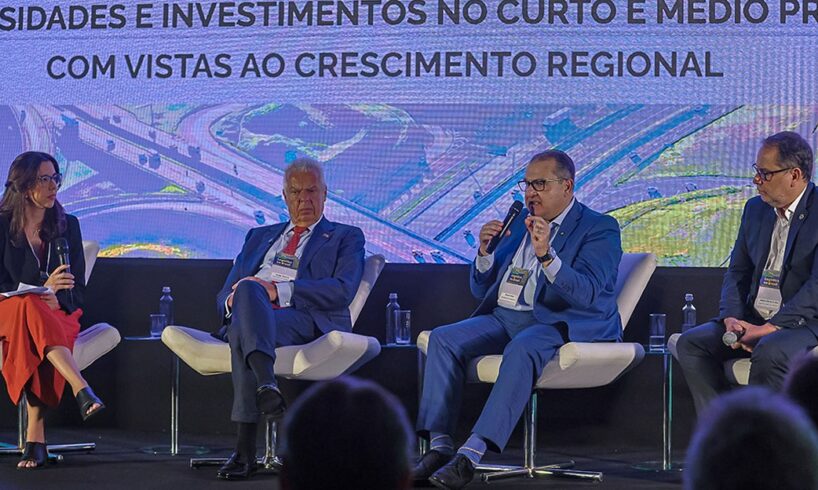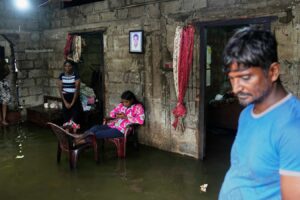
The federal government is studying the creation of a passenger rail network linking capitals in Brazil’s Northeast, in an effort to foster tourism and regional development. According to Jorge Bastos, president of the state-owned company Infra S.A., the first phase of the project will likely begin with a 110-kilometer line connecting Recife (Pernambuco) and João Pessoa (Paraíba).
“Infra has been studying stretches with potential for passenger transport viability. The first one the [Transportation] Ministry asked us to analyze is between the two capitals that are closest to each other. Later, if feasible, the line could be extended to Maceió, Natal, and beyond,” Mr. Bastos said during “Logística no Brasil,” a debate series organized by Valor in partnership with Infra S.A. and the Ministry of Transportation. The latest edition, held in Fortaleza, focused on the Northeast region and was moderated by Valor’s Recife correspondent, Marina Falcão.
The studies form part of the National Logistics Plan 2050 (PNL 2050), coordinated by the Transportation Ministry and executed with Infra’s support. Initiated in 2024 by presidential decree, the plan aims to outline long-term strategies for cargo and passenger transport. A first version is expected to be completed by 2025.
“To grow, we need long-term planning,” Mr. Bastos said. “The Northeast region has enormous potential, but to turn it into real development, we must invest in infrastructure.”
Flavio Ataliba, an economist at the Getulio Vargas Foundation (FGV), noted that while the Northeast accounts for 27% of Brazil’s population, it produces only 14% of the national GDP. Despite having grown faster than the rest of the country over the past decade, the region would still take about 180 years to reach GDP parity with its population share at the current pace.
“We need to accelerate the Northeast’s growth. Infrastructure is essential to that,” said Mr. Ataliba.
George Santoro, the executive secretary of the Transportation Ministry, said the federal government is betting on expanding the railway network to drive the region’s economy. He estimated that at least R$60 billion in investments are planned for rail projects benefiting the Northeast’s productive sectors.
Among them is a logistics corridor connecting Brazil’s Central-West region to the Port of Sul in Ilhéus, Bahia, linking the West-East Integration Railway (FIOL) and the Central-West Integration Railway (FICO). The project, one of the largest in Brazil’s transportation sector, is expected to begin the bidding process in the first half of 2026.
“The West-East corridor project is undergoing adjustments. By December, it will be submitted to ANTT [Brazil’s Land Transport Agency], and early next year to the Federal Court of Accounts [TCU]. The public tender should be released in the first semester,” Mr. Santoro said.
The corridor is expected to benefit mining and agriculture while improving industrial logistics, potentially attracting new industrial investment to the region.
Another key initiative is the Transnordestina Railway, under construction by Transnordestina Logística. CEO Tufi Daher Filho said operations are set to begin in 2027, with test runs starting in October 2025, transporting soybeans, corn, soybean meal, and limestone between Bela Vista do Piauí (Piauí) and Iguatu (Ceará).
Fabiano Chaves, deputy secretary for long-term planning at the Ministry of Planning and Budget, highlighted that transportation investments could help consolidate the Northeast as a global hub for clean energy production, especially green hydrogen. Meanwhile, Cloves Benevides, deputy secretary for sustainability at the Transportation Ministry, added that improved logistics planning would help cut carbon emissions through more efficient use of different transport modes.
However, José Arlan Silva Rodrigues, president of the Northeast Federation of Freight Transport and Logistics Companies (Fetranslog-NE), cautioned that roadways must remain central in regional planning. He pointed out that the National Transport Confederation’s (CNT) latest highway survey identified 1,017 of Brazil’s 2,446 critical road points in the Northeast alone.





